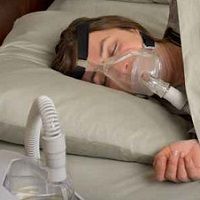Article
Melanoma Patients Can Blame Aggressive Symptoms on Untreated Sleep Apnea
Author(s):
New research in skin cancer discovered untreated severe obstructive sleep apnea (OSA) could increase the aggressiveness of malignant cutaneous melanoma.

New research in skin cancer discovered untreated severe obstructive sleep apnea (OSA) could increase the aggressiveness of malignant cutaneous melanoma.
Results from the study on the relationship between sleep-disordered breathing — apnea or hypopnea – and melanoma were presented at the ATS 2016 International Conference in San Francisco, CA.
Miguel Angel Martinez-Garcia, MD, PhD, Hospital Universitario y Politècnico La Fe, Valencia, Spain, and colleagues conducted the study of 412 patients with confirmed cases of cutaneous malignant melanoma to assess several factors demonstrating their prognosis.
This study was a result of earlier animal studies that showed the similar link between melanoma growth and sleep apnea.
All patients were required to undergo sleep studies — patients previously treated with CPAP were excluded.
Results showed patients diagnosed with the most aggressive cancers also experienced higher odds (and severity) of OSA, regardless of age, gender, BMI, skin type, sun exposure, and other melanoma risk factors.
According to Martinez-Garcia, prior research had established an existing connection between sleep apnea, heart disease, and car accidents, and the current study nudges at the potential relationship between sleep apnea and melanoma. However, she urges patients not to immediately assume they, too, would develop skin cancer.
Although further research is necessary, this is the first large, prospective multicenter study that showed “patients had markers of poor prognosis for their melanoma and highlighted the importance of diagnosing and treating sleep apnea”.
The next step would be to observe the same patients for relapse, treatment resistance, development of other cancers or a second melanoma, and mortality.
Similarly, Martinez-Garcia hopes to examine how long-term CPAP therapy could be affecting people with other forms of cancer
In the interim, Martinez-Garcia does urge dermatologists, cancer surgeons, and oncologists to ask their patients if OSA symptoms pose a problem, and if so, refer them for a sleep study.





